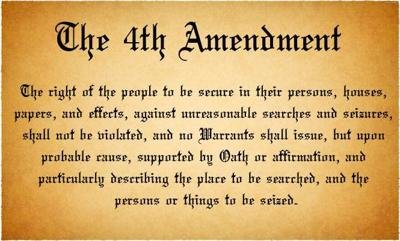The Olympics of Court Reporting

An official court reporter in Indiana recently found herself in a different position in the courtroom and fighting for her Fourth Amendment right against warrantless seizure and other constitutional rights.
Howard County court reporter Rachel Roberts is facing three felony theft charges, with prosecutors alleging that she overcharged thousands of dollars for court transcripts. Official court reporters are paid a salary for their work inside the courtroom. When a party orders a transcript of a trial or hearing, the court reporter is paid separately, since those transcripts must be prepared outside of their working hours in the courtroom for the most part. How that pay is calculated varies by jurisdiction. Some states set the transcript rate for all cases, and others only set the rate for indigent criminal cases and allow the reporters to charge market rates for other types of transcripts.
In Roberts’ case, an investigation began in 2015 when Judge William Menges (who is also Roberts’ uncle) and the county auditor noticed discrepancies in her billings. That investigation purportedly showed that “Roberts earned nearly $10,000 more for transcriptions in three cases than was allowed by law,” leading to the three felony charges filed in May 2017.
In September Roberts’ attorney moved to suppress evidence in the case, claiming investigators, in executing multiple search warrants in early 2015, seized various pieces of evidence not covered in the warrants. According to the motion to suppress, investigators obtained copies of Roberts’ bank records even though a warrant or subpoena wasn’t issued for the records.
As such, her attorney deemed that seizure as “warrantless,” violating her Fourth Amendment rights.
In addition, Roberts’ attorney alleges that investigators “elicited various statements” from her without properly informing her of her Miranda rights and that the warrants signed by Judge Menges were not valid because his role in initiating the investigation leading to the charges meant he was not a “neutral and detached magistrate” and because he will likely be a witness at trial.
[Judge Matthew] Kincaid concurred, writing in an order that he found that searches of Roberts’ home and office “violated the Fourth Amendment of the United States Constitution and were unreasonable under totality of the circumstances.” He ruled that “all items seized and all observations and statements made during or as a result of the execution of the warrant are suppressed and may not be presented to the jury at trial.”
Prosecutors also planned to introduce evidence at trial showing “acts of ‘ghost employment’ and acts of ‘overbilling’ in cases not relating to the charges Roberts faces.” Roberts’ attorney argued in the same motion that such evidence “would unfairly prejudice or mislead the jury,” and Judge Kincaid ruled in Roberts’ favor on that issue as well.
The case is set for trial in February, 2020.